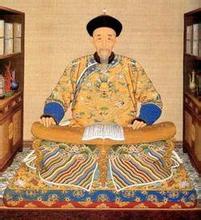(单词翻译:单击)
Qing Dynasty
清朝
Rise of the Manchu
满族的崛起
In the early 1600s Aixinjueluo Nurhaci formed the nomadic Manchu State known as Manchuo (满洲).
17世纪早期,爱新觉罗努尔哈赤建立了以游牧为生的满洲国。
He united four of the Manchu Flagged Factions that and later collected power of all eight of the flagged factions.
他统一了满洲四旗并掌控了八旗的所有权力。
In the later periods of his reign, he moved the capital to Shenyang.
在他执政的末期,他将都城迁到了沈阳。
When Lindan Khan, the last grand-Khan of the Mongols, died on his way to Tibet in 1634, his son Ejei surrendered to the Manchu and gave the great seal of the Yuan Emperor to Huangtaiji.
当蒙古族最后的大汗林丹汗在1634年前往西藏的路途中去世后,他的儿子额哲臣服于满洲国并将元朝的国玺交给了皇太极。
As a result, Huangtaiji established the new dynasty of Qing as the successor of the Yuan Dynasty in 1636.
因此,皇太极于1636年建立了清朝,也就是元朝的后一任帝国。
After years of civil unrest, the Ming capital Beijing was sacked by a coalition of rebel forces led by one Li Zicheng (李自成).
经历了多年的国内动乱,明朝的都城北京被李自成带领的起义军洗劫一空。
The Ming Dynasty officially came to an end when the last Ming Emperor committed suicide by hanging himself on a tree on the hill overlooking the Forbidden City.
当明朝的最后一任皇帝在遥望着紫禁城的山头上吊自杀时,明朝正式结束了。
After taking Beijing in April 1644, Li Zhicheng led an army of 60000 strong to confront Wu Sangui (吴三桂), the general commanding Ming’s 100000 strong garrison stationed at ShanhaiPass(山海关).
1644年4月,李自成占领北京后带领着60000强军与吴三桂对垒,吴三桂统领着明朝100000强大的驻军驻扎在山海关。
ShanhaiPass is the pivotal northeastern pass of the Great Wall of China located fiffy miles northeast of Beijing and for years its defenses were what kept the Manchus at bay and out of China.
山海关是长城东北部关键的关口,它位于北京东北方50英里的地方,多年以来,它将满族人阻挡在中国之外,使他们陷入困境。
Wu caught between two enemies decided to cast his lots with the Manchus and made an alliance with Dorgon, regent to the then six-year old Shunzhi, son of Huangtaiji who had passed away the year before.
吴三桂被夹在两个敌人中间,最终决定将赌注下在清朝身上并与6岁顺治帝的摄政王多尔衮结成联盟,顺治帝是皇太极的儿子,皇太极于前一年驾崩。

Together the two armies met Li Zhicheng’s rebel forces in battle on May 27, 1644.
1644年5月27日,吴三桂与清军联军和李自成的起义军开战。
Even though the rebel forces were routed, Wu’ s army was so weakened by the day’s fighting that he had no choice but to join the Manchus forces as they captured Beijing on June 6 and began their conquest of the whole of China.
尽管李自成的军队已溃不成军,吴三桂的军队也因连日征战过于虚弱,无奈只得在满洲国的军队攻占了北京征服了中国之后加入他们的军队。
The process took another seventeen years of battling Ming loyalists, pretenders and rebels.
满洲军队又花了17年与反清复明者、伪政权以及起义军作战。
The last Ming pretender Prince Gui sort refuge in Burma but was turned over to a Qing expeditionary force headed by Wu Sangui who had him brought back to Yunnan province and executed in early 1662.
明朝伪政权的最后一任皇帝桂王在缅甸避难,后来又被移交给了吴三桂带领的清朝远征军,吴三桂把他带回云南省,并在1622年早期将其杀害。


